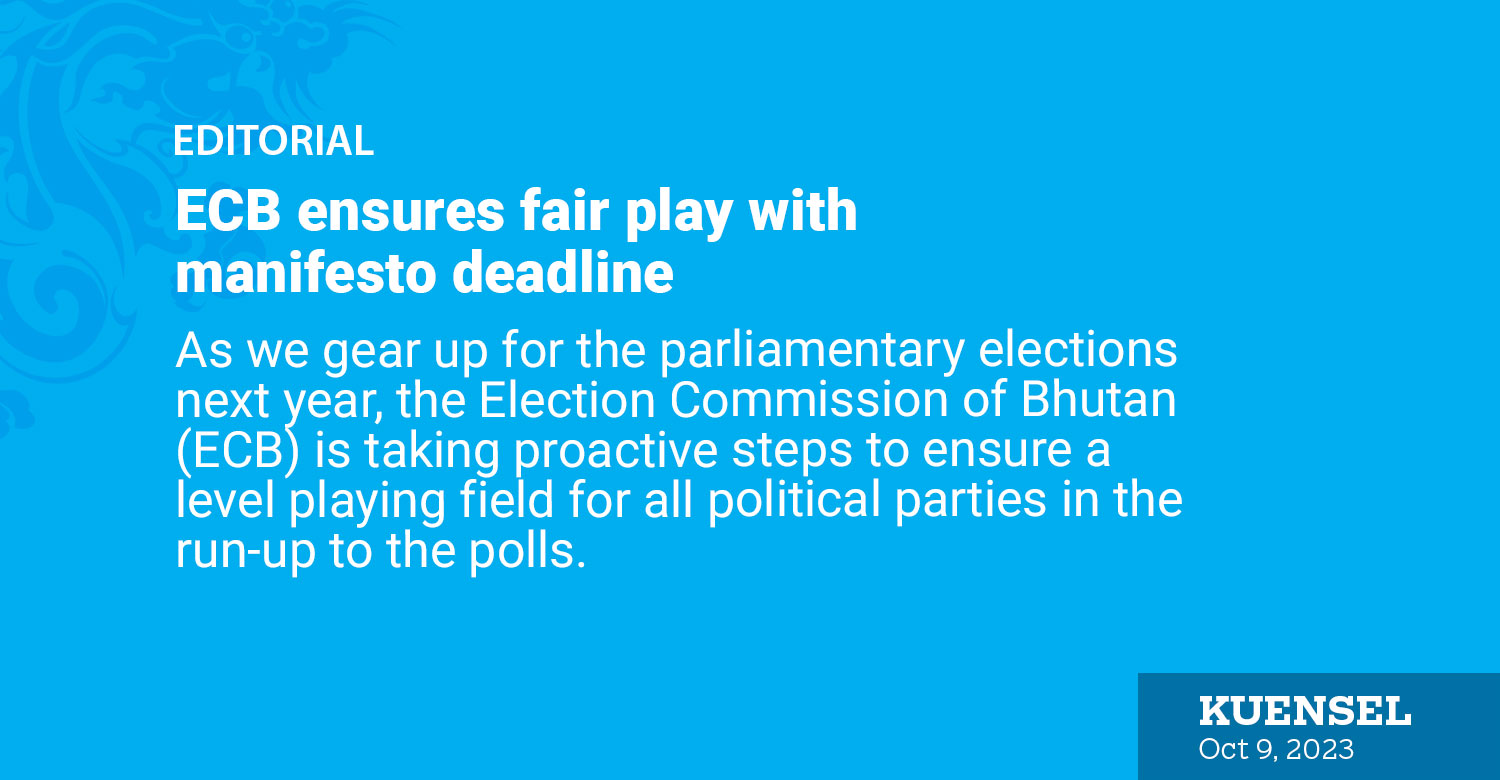As we gear up for the parliamentary elections next year, the Election Commission of Bhutan (ECB) is taking proactive steps to ensure a level playing field for all political parties in the run-up to the polls.
The ECB’s recent decision to curtail familiarisation (FAM) tours and public consultation meetings for political parties may seem like a straightforward bureaucratic move, but it carries significant implications for the integrity of Bhutanese democracy.
This timely intervention by the Commission underscores the commitment to maintaining fairness, transparency, and efficiency in the electoral process.
The backstory to this decision lies in the Commission’s earlier approval of FAM tours and public consultations for political parties to prepare and consult on their manifestos. These activities are crucial in a democratic setup as they allow parties to engage with citizens, understand their concerns, and incorporate their aspirations into their policy platforms.
However, the ECB’s latest notification, issued on October 5, cites a compelling rationale for stopping these activities. Manifestos from all political parties were duly submitted to the Commission on September 28, nearly a week prior to the notification. In essence, the parties had already communicated their policy intentions to the Commission, rendering additional consultations and familiarisation tours redundant.
Phub Dorji, the Director of the ECB Secretariat and spokesperson, explained the Commission’s stance, stating that political parties cannot provide additional pledges since they have already submitted their manifestos. This decision aligns with Bhutan’s tradition of maintaining a level playing field and upholding the sanctity of electoral processes.
The ECB’s move signifies a resolute commitment to the principles of fairness and transparency in the lead-up to the elections. By ensuring that all political parties adhere to the same set of rules and deadlines, the Commission has created an environment in which the electorate can make informed decisions based on the manifestos submitted by the parties.
ECB’s decision safeguards against the temptation of parties to make rash promises in the heat of the campaign. By imposing a clear deadline for manifesto submission, the ECB discourages parties from engaging in populism and instead encourages them to focus on thoughtful and sustainable policy proposals that align with the nation’s long-term interests.
Critics might argue that this decision limits citizens’ opportunities to interact with political parties. However, it’s important to remember that democracy is not just about constant engagement but also about accountability. The submission of manifestos well in advance allows voters to hold parties accountable for their promises and provides ample time for public scrutiny and debate.


